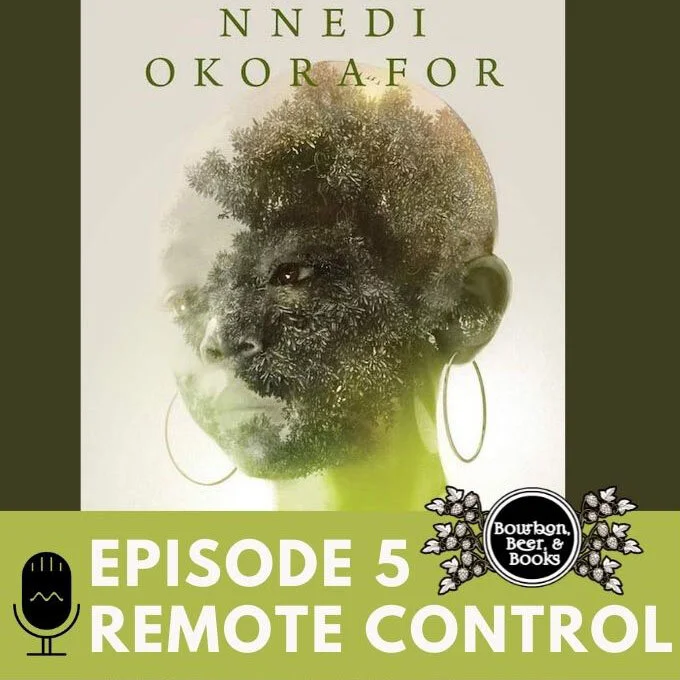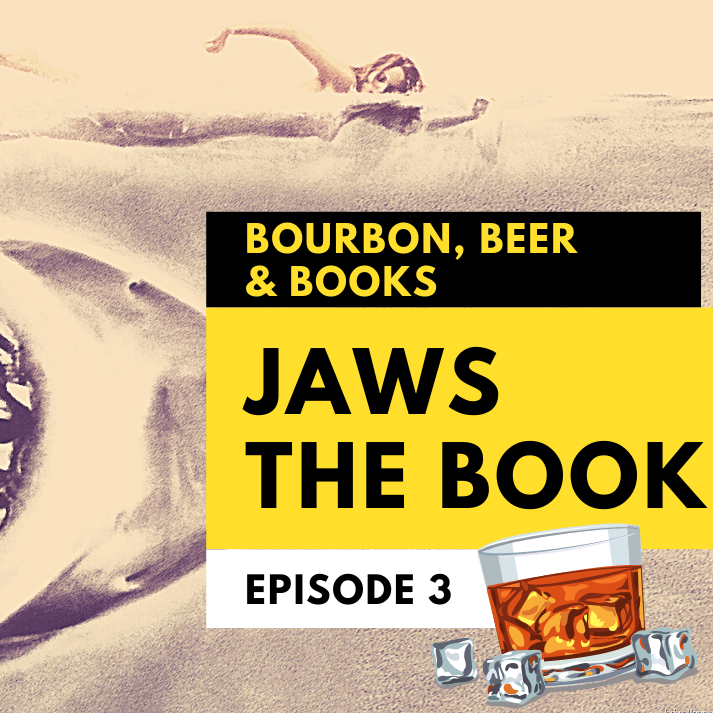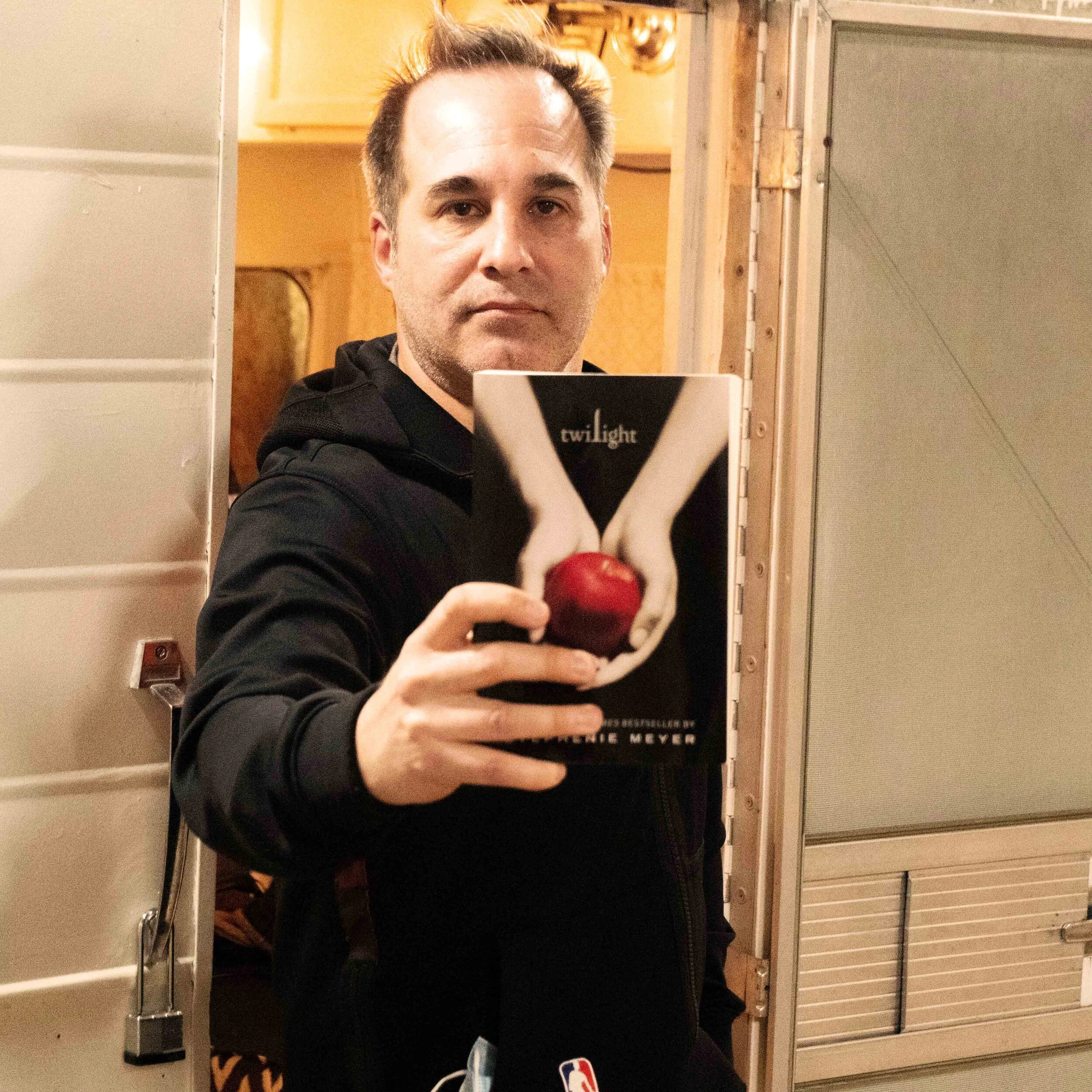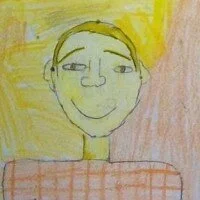LITerally Ep. 30 - Espido Freire
“Intimidating and Illuminating,” as quoted in the most recent article in SLUG Magazine, is the only way to describe our conversation with Author Espido Freire, along with Isabel Asensio, Professor of Spanish, and Electra Gamon Fielding, Associate Professor of Spanish.
Her extensive, impressive, and accomplished bio is below. We were so fortunate to talk with the 2018-19 Hurst Artist/Scholar-in-Residence at Weber State University.
Thank you, again, Isabel, for inviting us along.
-
Epido Freire Bio:
Espido Freire is a young prolific writer whose fictional and non-fictional work has had a major reception, both by the public and the critics. She is one of the most promising writers of Hispanic narrative. She was born in Bilbao on July 16, 1974. After spending some years studying Early Music Studies, she graduated with a degree in English Literature from the University of Deusto, where she also completed a Master’s Degree in Editing. While at the University of Deusto, she founded two creative writing journals. She is still involved with the University of Deusto’s cultural affairs.
She published her first novel, Irlanda (1998), when she was only 23 years old. The novel received the Millepage Award in 1999, given by the French librarians to the best foreign work. She published her second novel in 1999, Donde siempre es octubre, immediately followed by Melocotones helados, for which she won the Planeta Prize (best-known literary award in Spain). At that point, she was only 25 years old, which meant she had become the youngest novelist awarded with the Planeta. A year later, she received the Qué Leer Award for Melocotones helados, given by the readers to the best Spanish novel. Since then, she has dabbled into other genres such as short story, essays, young adult literature, and poetry, and has never disappointed the critics. As an essayist, she has published When eating is a hell (2002), a research work on young women dealing with bulimia, a disease she suffered when she was young. For a comprehensive list of her work, visit the official website above.
She also writes for newspapers and magazines, and works as a freelance literary translator. Critics view her as one of the fresher and most interesting voices in the Spanish literary field, and the excellent reviews on her first novel have been repeated more than once ever since. Her work has been translated into English, French, German, Portuguese, Turkish, Polish, Italian, Greek, and Serbian. She is interested in Creative Writing and usually teaches writing workshops at different universities and cultural institutions. She has opened her own School of Creative Writing, E+F, in Madrid.
LITerally Ep. 60 - High Plains Book Award WINNER, Craig Lancaster on BEING a WRITER
We talked with Adrian Stumpp about his book The Chemical Marriage. He told us his inspiration for this book was dull; it was anything but dull. It was awesome. You'll have to listen to understand.
We talked about a lot more than writing in this episode with author Taylor Garcia. We jumped into everything writers think about when writing that readers probably never know! Writing isn’t just putting words on paper. It’s a life. We delve into all of this.
Heather Mateus Sappenfield joins us on LITerally to talk about the challenge behind switching genres, voice changes, and viewing the world through the eyes of a child. It's a good one!
Marvel Comics author Ben Percy on Bourbon, Beer and Books
Teresa Dovalpage, friend and author, joined us again. If she’d join us, we’d have her every week. Luckily enough, she just keeps publishing, giving us an excuse to have her on!
Essayist and poet Rob Carney on the podcast to talk about his new essay collection and his new poetry collection. We had fun in the Banyan one!
It was really, really awesome to talk to Larry Feign about his new novel that took years to research and to write. It’s an absolutely beautiful book, inside and out.
Amanda Kabak, author of the newly released novel titled UPENDED, joined us to talk about the book. It was great to talk about the evolution of this book, the characters, and their motivations.
David Gessner joined us to talk all things Henry David Thoreau, thoroughly, while talking about the craft of writing nonfiction and writing a book during the pandemic. Such a great conversation!
This month we discuss NNedi Okorafor's Remote Control, described on her website as, "science fiction of the Africanfuturist strain that knows aliens exist, quietly shows how technology is influenced by culture, features a powerful yet deeply-pained female protagonist, and wonders about the role of corporations in rural Africa."
Kase's pick, Rendezvous with Rama, is a science fiction novel by Arthur C. Clarke. Set in the 2130s, astronauts explore a cylindrical alien starship. How does this 1973 classic hold up?
Full of welcoming metaphors and more depth than anticipated, JAWS, the book, surprised us in a few ways. As Leigh noted, "Even when it's problematic...it's still trying to do stuff.”
Sometimes, it's just best to sit back, listen, and learn. Going into my interview with Paisley Rekdal, that was my plan, and I'm happy I stuck (mostly) to it because there's no reason to mess up a good hour of great, researched insight with my fumbling. So fortunate to have Utah's Poet Laureate and author of APPROPRIATE
Bourbon, Beer & Books Ep. 2 - The Sun Also Rises, gender fluidity, impotence, bull fighting, and whiskey Where does that type of trophy-hunting/prove-your-masculinity fit in today's literary scene?
From across the globe and from 12 hours in the future, Bradford Phelan joined us on the LITerally Podcast. Let's just say that I enjoyed the 'heck' out his book When the Color Started. Grab it.
LITerally podcast host Kase Johnstun along with co-hosts Leigh Camacho Rourks, Sean Davis, and Tia Brown discuss the phenomenon that was Twilight.
Today we spoke with Valerie Miner, author of numerous fiction, nonfiction, and poetry collections.
Think of this interview with Michael Kasdan, sports and special projects editor at The Good Men Project, like a time capsule from pre-election, pre-vaccine interview.
Authors M. Ellen Dash and Ali Meeks talked with the LITerally Podcast about their new book Conquer Your Fear of the Triathlon Swim.
Adrienne Christian shared poetry from her new book with us on the LITerally Podcast.
Sian Griffiths, writer and sometimes co-host of the literally podcast, joined us in the time of Covid, only a few miles from her house, via Zoom to talk about her new novel, Scrapple.
It's been a long time coming, but has time really passed over the last few months? Has it really? Here is our fun Literary Death Match Podcast from last year's event.
Sharon Harrigan joined us for the second time for her debut novel Half. It was our first time recording since we last saw each other before shutting it down for Covid. This was a great way for LITerally to jump back in!
Sunni Brown Wilkinson’s poetry has been published or is forthcoming in Crab Orchard Review, Adirondack Review, Sugar House Review, Hayden’s Ferry Review, and other journals and anthologies. She is the author of The Marriage of the Moon and the Field (Black Lawrence Press 2019), and her poem “Rodeo” won New Ohio Review’s inaugural NORward Poetry Prize.
Poet and friend Laura Stott joined us in the Banyan Studio to read and talk about poems from her new book The Blue Nudes. It’s a great conversation about inspiration and verse and parenting and teaching!
Heather Sappenfield joined us via radio network. She bounced off satellites to join us. Well, she didn't, but I love that we got to talk to her from long distance. We chatted about writing, about the YA business, and about imagining worlds.

































LITerally Ep. 61 - Kathryn Wilder, Desert Chrome: Water, A Woman, And Wild Horses In The West